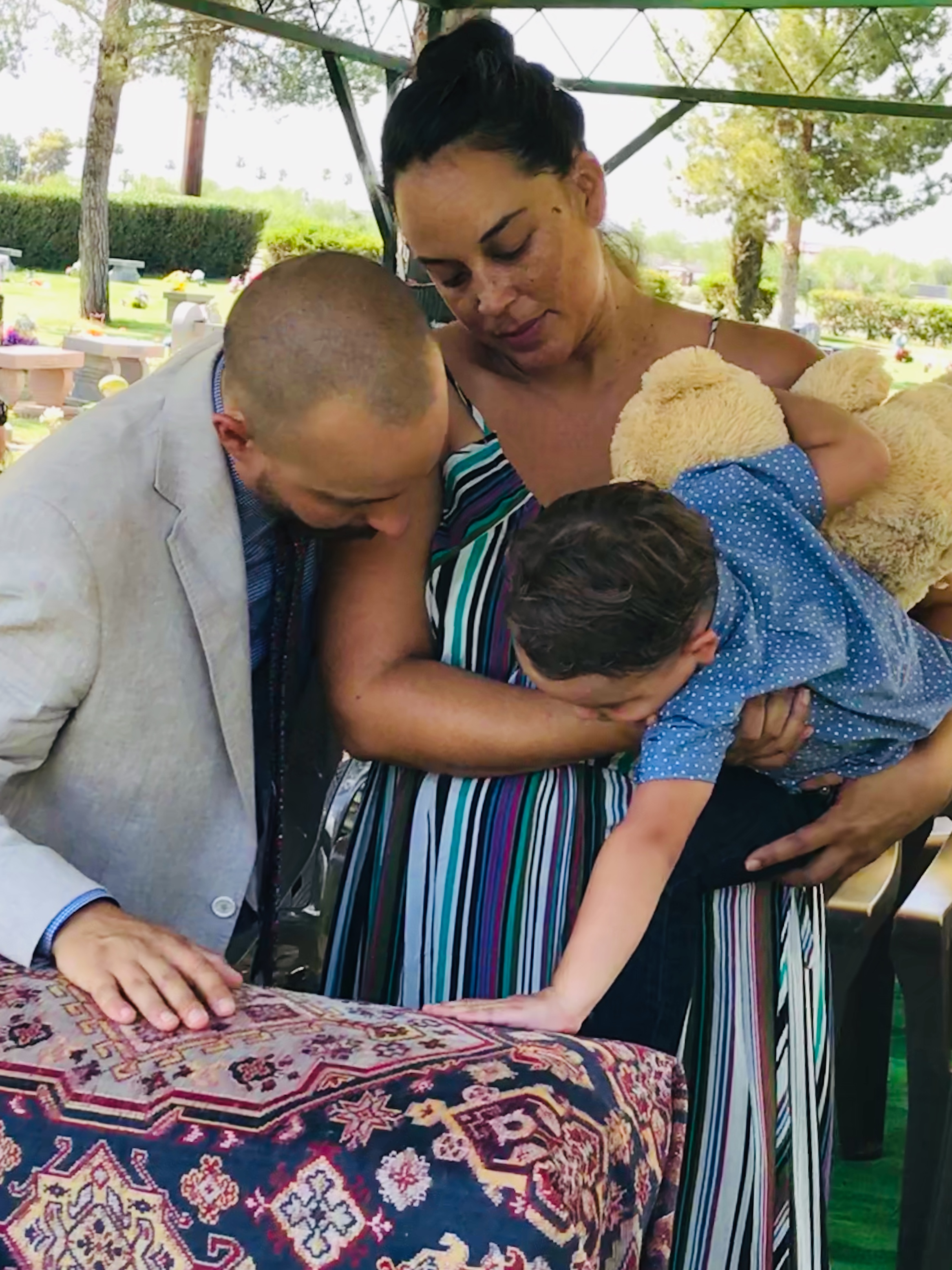Most people don’t think of Phoenix and think about freezing temperatures. But, winter in the desert can get cold — especially at night. And when it does, the growing community of people living on the street has to find ways to stay warm.
I went to the state’s largest homeless encampment in downtown Phoenix — the area called “The Zone” — early one morning in January and saw firsthand how that can pose serious threats to their safety.
Winner, 2024 RTDNA Regional Murrow Award, Large Market Radio Continuing Coverage, “’The Zone:’ From the Courtroom to the Street the Last Year in Phoenix’s Largest Homeless Encampment”
2024 Public Media Journalists Association, Continuing Coverage, Second Place, “’The Zone:’ From the Courtroom to the Street the Last Year in Phoenix’s Largest Homeless Encampment”
A harsh reality has become increasingly clear in recent years: Giving birth in America is getting more dangerous. Maternal mortality rates have more than doubled in the U.S. between 1999 and 2019, and here in Arizona, Axios Phoenix reports pregnancy-associated deaths have quadrupled.
The picture is worse for women of color — the worst for Black women, whose rates in Arizona went from 23 deaths per 100,000 live births to 123 deaths in those two decades.
None of it surprises Lakisa Muhammad. As the mother of three and a midwife, she told The Show that she’s seen the kind of discrimination Black women face in the labor and delivery room countless times, and she’s experienced it herself.
Now, she’s the executive director of the Phoenix Birth Foundation and a groundbreaking group she founded in 2016 called Arizona Birthworkers of Color.
In The Show's latest edition of our new segment, Deep Dive, I spoke with her more about it all.
Calexico is one of the most notable bands to come from Arizona. For many, its music — which is sometimes called “desert noir” — is synonymous with the Southwest. It blends styles like Americana and folk, with cumbia and mariachi — making it a reflection of the cultural milieu of the borderlands.
In just over two decades, the Tucson-based band has found a unique place as a group that makes music that is simultaneously personal and political. The lyrics on Calexico’s latest album "The Thread That Keeps Us" serve as a post-2016-election reflection explored through individual stories.
Calexico’s frontman Joey Burns, along with bandmate Sergio Mendoza, visited us in Phoenix just ahead of the kickoff of their summer tour. The Show spoke with Burns about the politics of our region, how the desert landscape shapes Calexico's sound and storytelling through music.
Calexico performed for KJZZ in The Reading Room at Valley Bar. They are performing June 1 at The Van Buren in Phoenix.
Monsoon season in Arizona is both violent and beautiful. Powerful winds and rain can flood streets and destroy homes. But, the storms also bring at least temporary relief from the oppressive desert heat and much needed water to our perpetually dry city. And, whether you love it or you hate it, the monsoon is a uniquely Arizona time of year.
For this series, we talked to artists, architects, poets, scientists and even a park ranger about the monsoons. And, we asked the listeners of The Show for their input as well.
What we got is a multifaceted, in-depth, sometimes emotional, sometimes funny look at the Arizona season that defines this place we live in.
Last month, Tracy Nadzieja stood in front of a courtroom, took an oath to become a commissioner of the Maricopa County Superior Court and became the first known transgender judge in the state.
And, according to the Southern Arizona Gender Alliance, Nadzieja is just the third in the country.
Despite her historical position, she never wanted to be in the spotlight — especially for her gender identity.
But after she took that oath, she agreed to sit down with the Arizona Capitol Times to talk about being the first.
She also agreed to sit down with The Show to talk about her journey and how she’s become the story despite her hesitations.
It used to be that if a woman suffered a miscarriage, it just wasn’t something you talked about, especially not in a public way.
But that’s changing.
October was Infant Loss and Miscarriage Awareness Month — and Oct. 15 a day of remembrance for those who have been lost. Throughout the month, we heard family and friends tell their stories on social media, many of whom we never knew had experienced anything like this.
So, what made them come forward?
For Kalila Martinez, it was her own need for release that motivated her to share that day. A few years ago, she became pregnant with her second child, but had a miscarriage pretty early on. Then, just last summer, she lost another child — this time, on the day he was born.
After she suffered that miscarriage, she said it changed her understanding of trying to conceive.
The Show sat down with her to talk more about her own experience, and why she thinks so many more women are willing to talk about infant loss than ever before.

